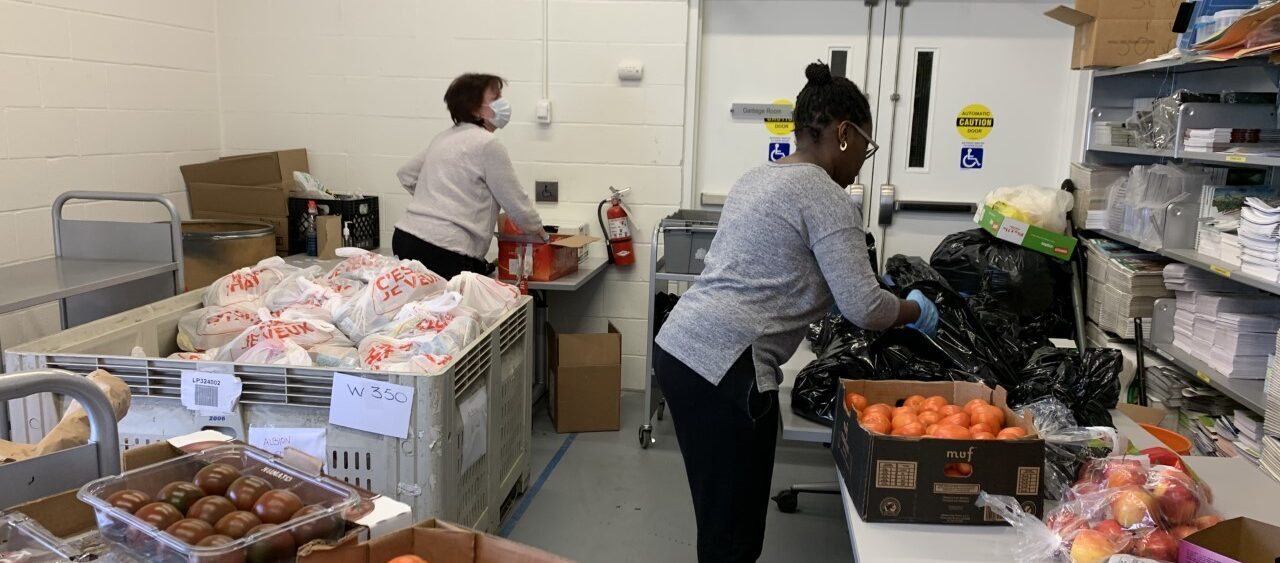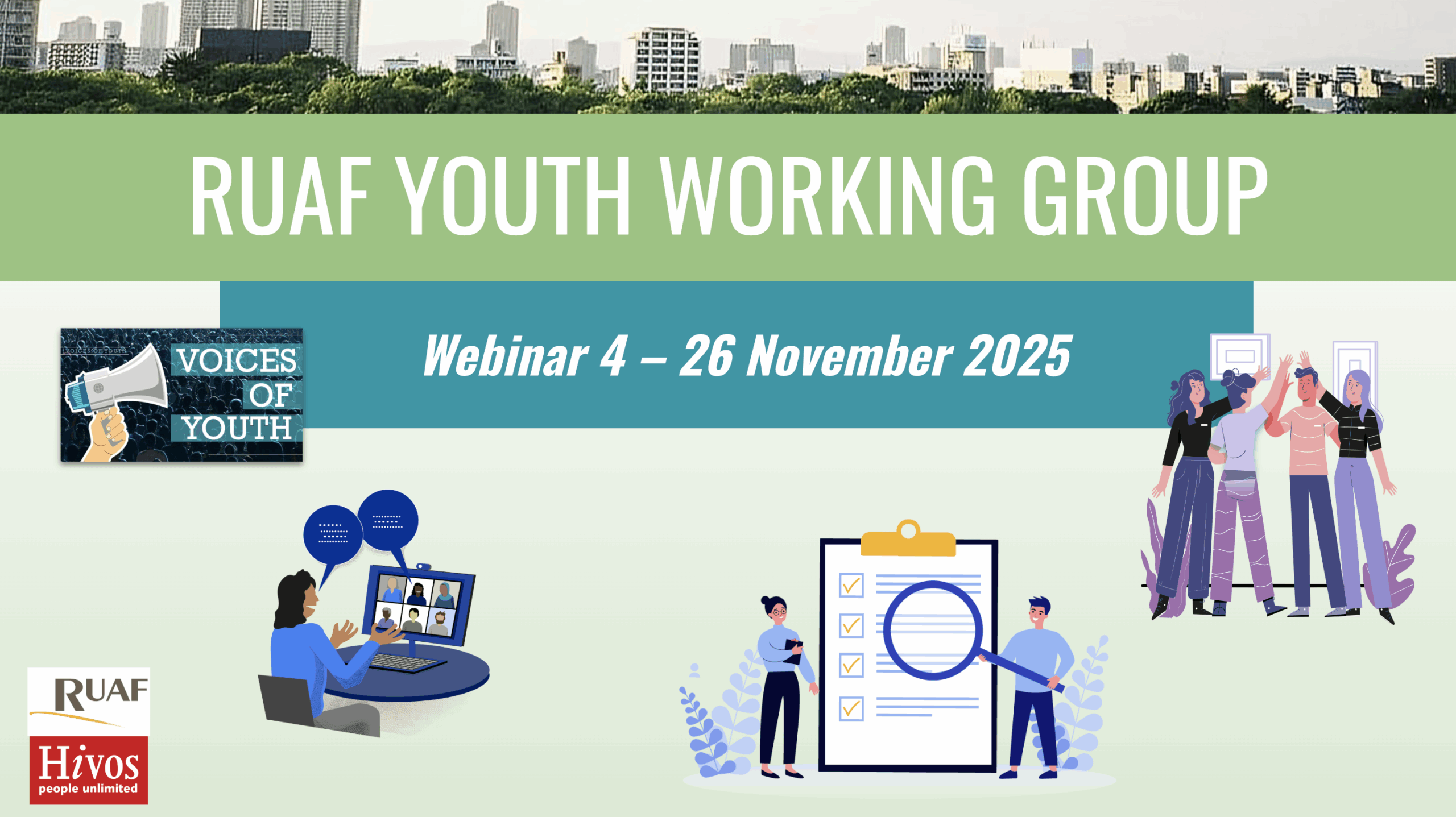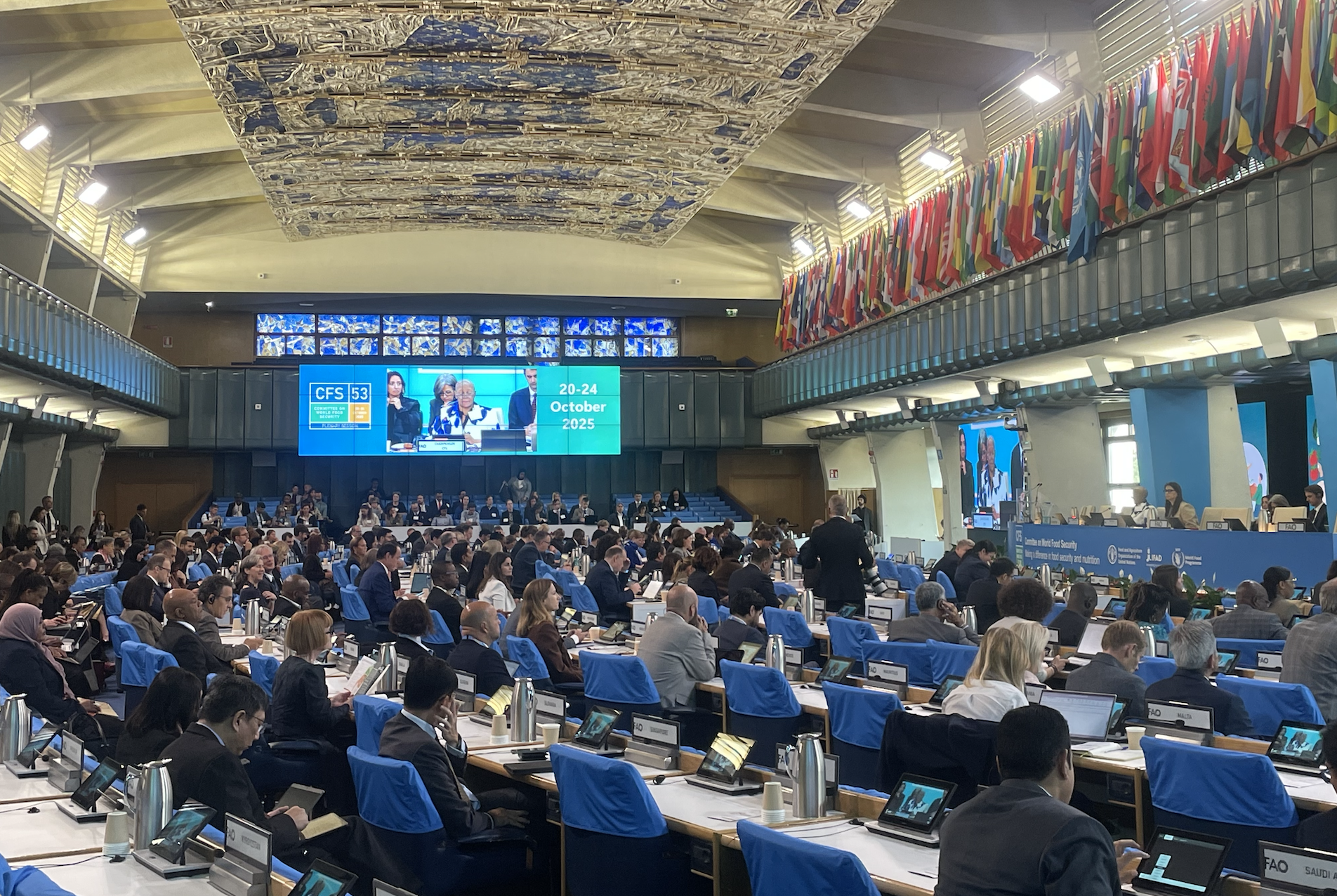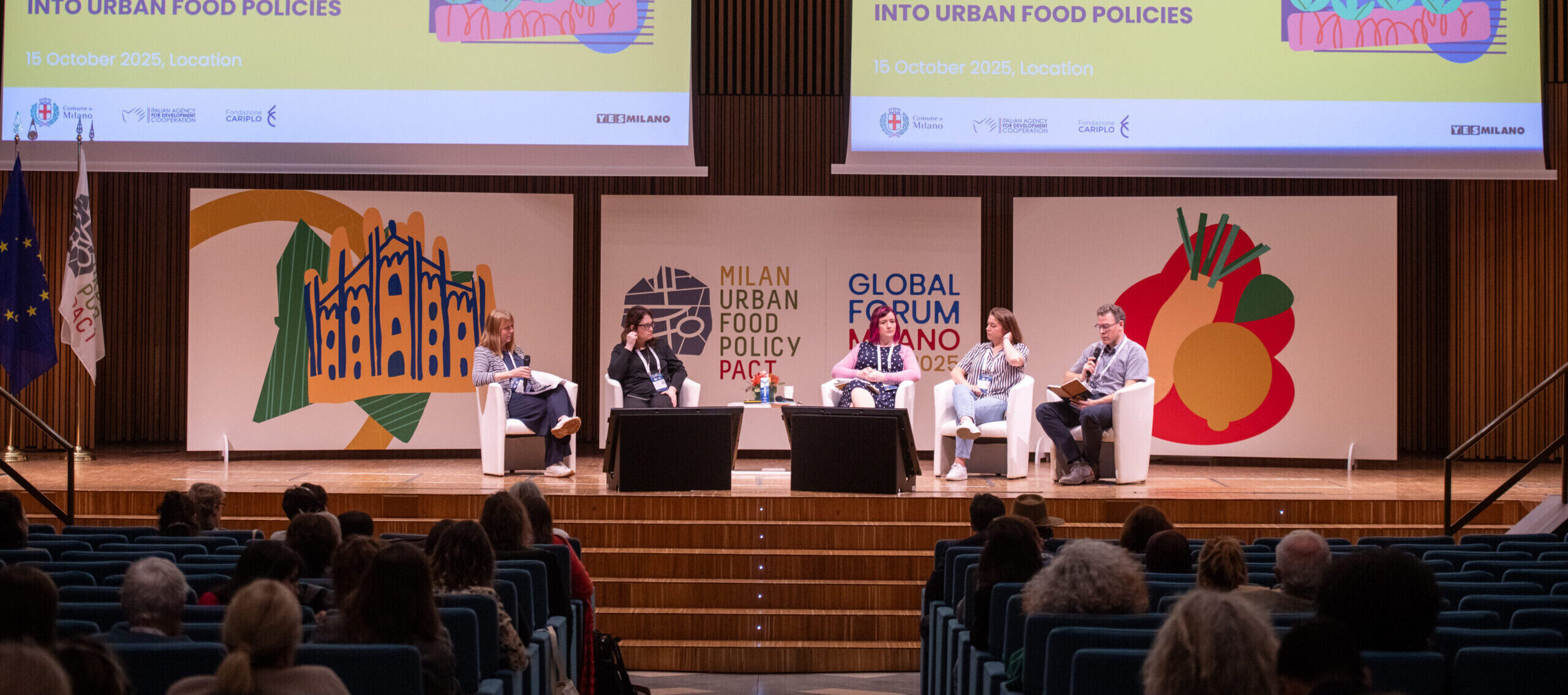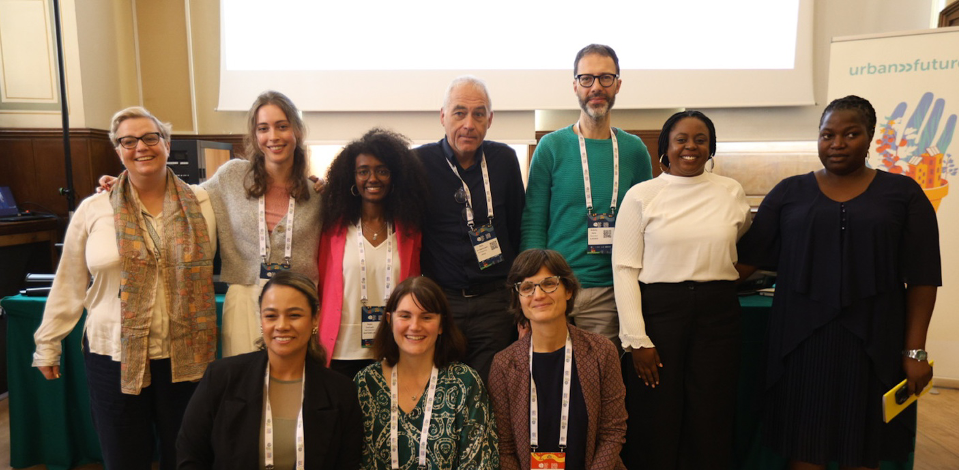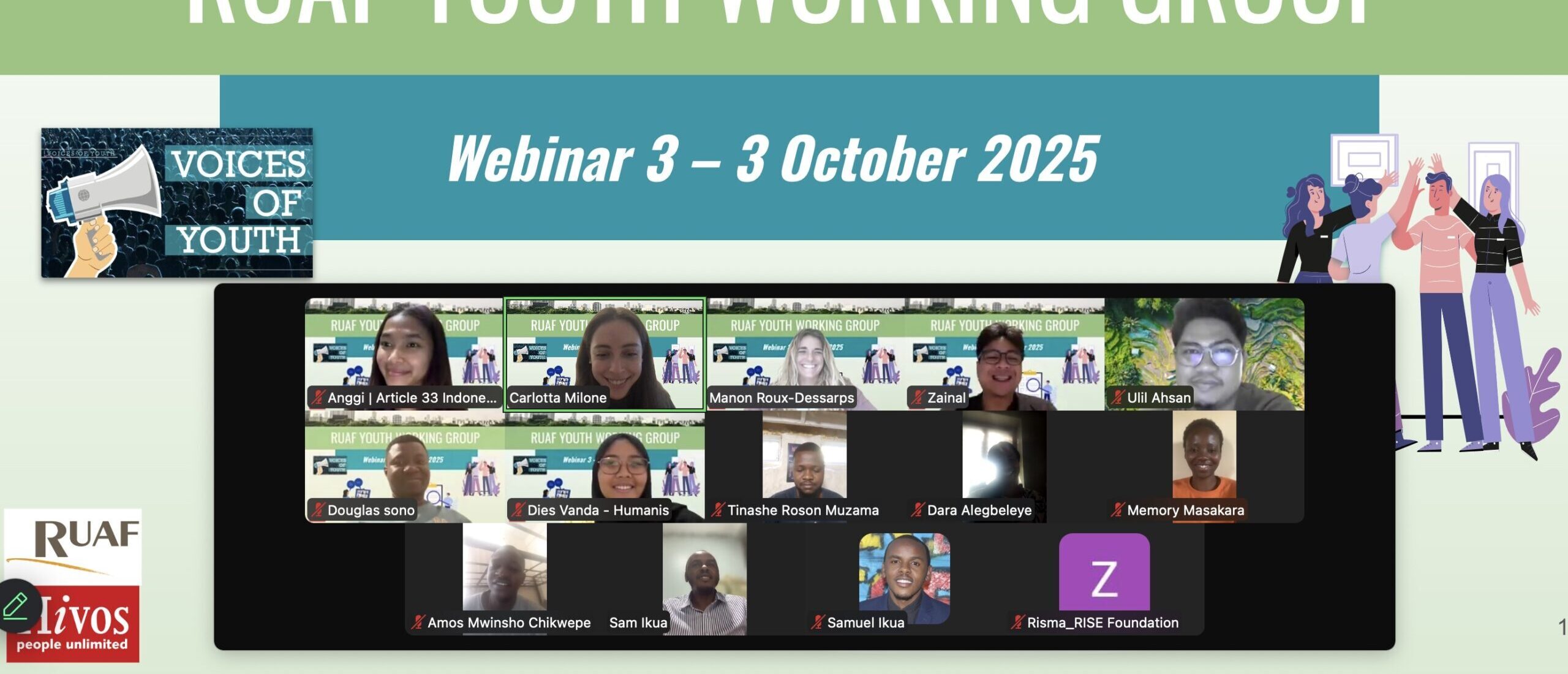Author: Barbara Emanuel
I recently retired as Manager of the Toronto Food Strategy and retirement has thrust me into a liminal state. The word “liminal” means being on the threshold; it is a point or place of entering or beginning, when you are no longer in your current state but haven’t fully transitioned yet to the next one. It is NOT a passive state. There are huge unknowns ahead, but also multiple opportunities to be proactive and create new priorities. The COVID-19 pandemic, it seems to me, has thrust the entire world into a liminal state. No-one knows what a post-COVID world will look like and nothing can be taken for granted.
In Canada, and likely the world over, this is a time when the whole country has become aware of our food system. At a broad level, people are paying more attention to where our food comes from, mainly as a result of disruptions to our food supply and with the increasing numbers of people finding themselves food insecure. The spotlight is on the vulnerabilities in our highly concentrated, specialised and globalised food system.
Exposing the inequities
COVID-19 has exposed the inequities in all systems – health, housing, social services, economics, and food. Much has been written and discussed about how this pandemic is unprecedented. No one knows what our institutions, economic structures, social and food systems will look like post-COVID. While we know that the impact is huge and that there will continue to be immense suffering the world over, we have some real opportunities to make crucial systemic changes and to prioritise health and equity in all systems.
Closed borders and disruption of businesses and workplaces bring many issues and questions to light, despite political and industry commitment to enable continued flow of essential goods and services. For example, an immediate issue faced by many farmers as a result of closed borders and strict physical distancing requirements, is the inability to bring in crucial migrant farm labour for agricultural production. While there have been efforts to bring attention to the issues faced by migrant workers for many years now —such as poor housing conditions, lack of health services, low pay and long hours —people who have never paid attention to this before are now forced to acknowledge the reality that without migrant labour, our food supply is at risk or at the very least there will be shortages of some commodities.
Another example very much in the public mind and discourse, is the fact that large scale meat processing facilities have experienced COVID outbreaks and have been forced to close. These are highly centralised, large facilities, yet no small to mid-scale alternatives exist to pick up even some of the slack. This, together with the massive shifts required for food services as a result of many restaurants and institutions forced to reduce or even cease operations, has meant that industry must pivot to serve new markets and develop new distribution strategies. This means that large scale producers and distributors have had to change production and distribution mechanisms from wholesale to retail markets with a major shift towards online purchasing. This is illustrated by the fact that consumers in Canada cannot find flour on the grocery shelves while our grain stockpiles are at a record high.
Emerging solutions for community and food system resilience
Now that there is more discussion and actions towards moving from emergency response to recovery, the question is: what will recovery look like? We have enormous opportunities to prioritise short supply chains by supporting local and regional farmers and by leveraging the procurement power of local government and institutions. Such solutions that recognise the importance of local and regional food systems tend to be more resilient in the face of both emergency and recovery by promoting local economic development, diversifying and localising our supply and helping address food security. These solutions must build on the expertise of farmers, community organisations and food networks, with the goal of promoting both community and food system resilience.
There are a myriad of wonderful examples of generosity, collaboration across sectors and community mobilisation that have emerged during the emergency. These serve to leverage resources and make effective use of existing capacity and infrastructure. For example, in Toronto, pop-up food banks have been set up in 12 neighbourhood libraries across the city with about 3000 food hampers packed by library staff. This is a brilliant use of available infrastructure and resources — library staff have been happy to volunteer for this service and libraries already serve as neighbourhood community hubs where people feel comfortable. Libraries also have good warehousing and logistics capacity usually reserved exclusively for books. Why not continue this into immediate and longer term recovery by integrating good food access, food skills programming and urban agriculture into library operations? That would be a win-win situation that builds on the effective cross-sectoral collaboration and mobilisation of existing resources.
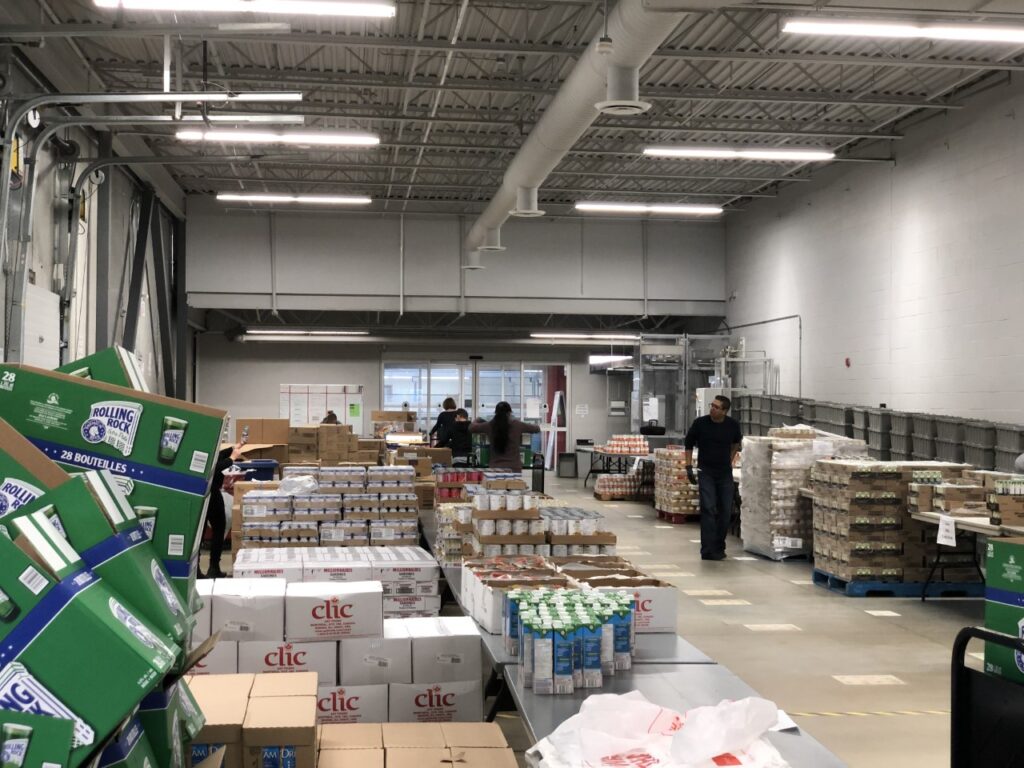
Another current example is the use of inspected community and institutional kitchens to produce thousands of prepared meals for vulnerable people who don’t have the means or can’t leave their homes. Both smaller community kitchens and larger facilities that normally serve large-scale sports arenas have adapted their kitchens for such use. Once again, it would be such an opportunity to keep at least some of this capacity and collaboration in an ongoing manner.
People need to eat good food every day and multiple times a day. The systems to distribute food to everyone and in particular to vulnerable people in our cities, rural areas and Indigenous communities are being invented in real time to address the current emergency. Luckily in Toronto we have a strong foundation to build upon with a long history of food policy and advocacy through the Toronto Food Policy Council as well as a food strategy that worked top-down and bottom-up to promote a healthy, sustainable food system.
Reorienting and rebalancing our food system
Comprehensive emergency preparedness includes emergency planning, response and recovery. It is essential to embed more long term systems thinking and enabling policy into immediate emergency response. This of course, is immensely difficult when the immediate pressures and demands of the emergency are so enormous. And yet we have an unprecedented opportunity to reorient and rebalance our policies to support city- region food systems and to leverage collaborative partnerships and local action. Our supply chains need to be re-tooled and regionalised to handle disruptions and promote resilience. Our food system must become more diversified and therefore more nimble and able to pivot to meet both shocks and stresses. More than ever we are seeing that our large, concentrated systems are not resilient.
NOW is the time to embed longer term, systemic solutions into our emergency response and recovery; to invest in people and networks who have the solutions, lived experience and who bring a systems approach combined with pragmatic experience.
So, to return to that liminal concept. The pandemic has thrust us all into a place of “inbetweenness” and insecurity. At the household, community, institutional, state and global levels we are in a state of overwhelming ambiguity, disorientation and anxiety. We are collectively standing on the threshold, waiting for what’s next and what our new normal will look like. There is enormous pain and uncertainty, but it is up to all of us to recalibrate our priorities and to reorient our institutions, systems and state priorities to ones that support a more equitable society and respect for our planet.
Barbara Emanuel is former Manager of the Toronto Food Strategy (led by Toronto Public Health), and Toronto representative in the RUAF Global Partnership for the past four years. Barbara retired in March 2020, handing over representation in RUAF to Diana Johnson. We are grateful to Barbara for sharing her experience within RUAF, and we look forward to her continued involvement as an advisor.
Barbara will speak in the upcoming (virtual) Urban Food Policy Forum, “How Can Cities Survive and Learn From Crises That Disrupt Urban Food Systems?”. The forum is on Thursday, 28 May, 2020 (9.30 EDT) and organised by CUNY, Urban Food Policy Institute.

